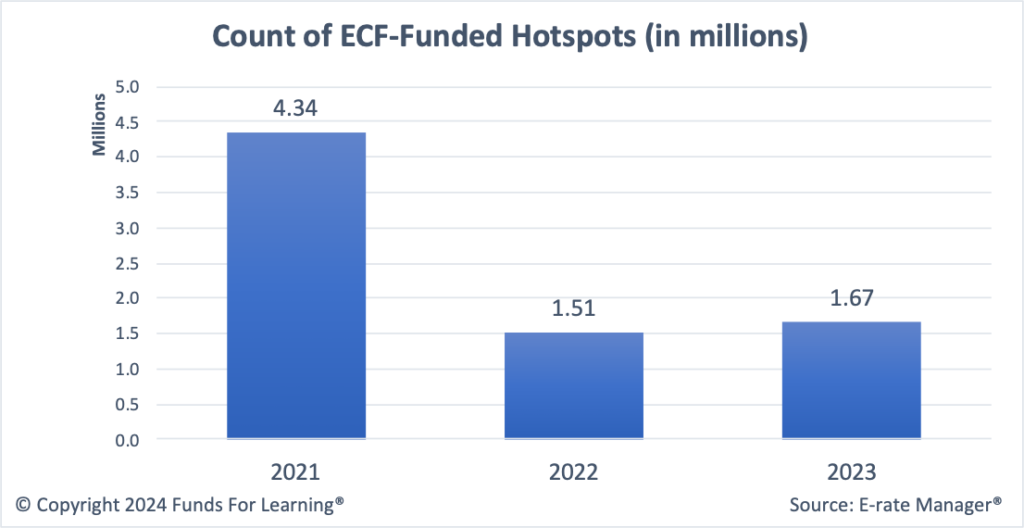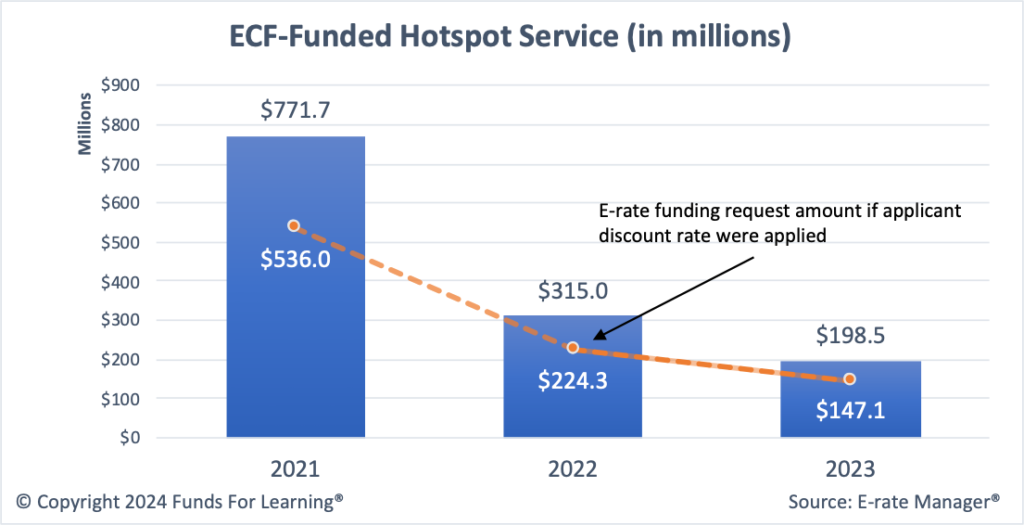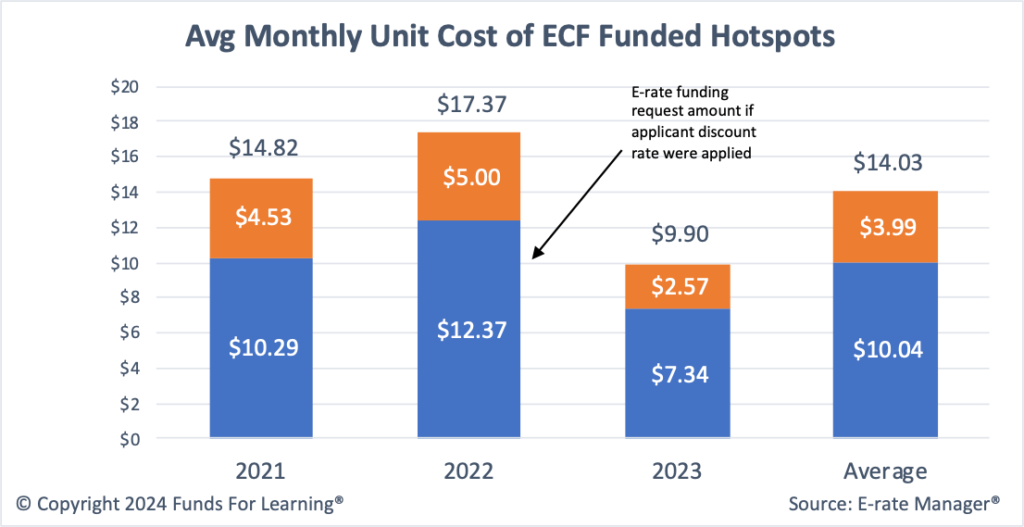The FCC’s Emergency Connectivity Fund (ECF), launched in response to the COVID-19 pandemic, supported students’ off-campus learning needs by providing funding for mobile Wi-Fi hotspots. With the ECF now winding down, the FCC proposes to establish ongoing support for mobile Wi-Fi hotspots under the E-rate program. Based on an analysis of ECF data, Funds For Learning estimates that the annual E-rate demand for mobile hotspots will be $198 million.
ECF Demand for Mobile Hotspots
The ECF experienced significant demand for mobile hotspots in 2021, 2022, and 2023. This demand underscores the essential role of internet access in modern education, especially in the context of remote learning. At the outset of the ECF program in 2021, support was offered for 4.34 million mobile hotspot devices. A year later, for 2022, schools and libraries received ECF funding commitments for 1.51 million devices. Finally, in 2023, 1.67 million devices received support.

The variation in the number of devices receiving ECF support likely represents the initial uncertainties of the COVID-19 pandemic, the impact of the Affordable Connectivity Fund program on communities, and practical implementation factors. Ultimately, by 2023, it seems that the demand levels may have found an initial status quo of sorts.
Estimated Financial Impact on E-rate Program
The data from 2021 to 2023 showcases the evolving demand for mobile hotspots, providing a solid foundation for forecasting future needs. The ECF program fully funded services, in effect offering a 100% discount on eligible mobile hotspots. However, using the E-rate discount rate of each ECF applicant, it is possible to estimate the total demand for E-rate funds that would have occurred in each year. For example, in 2021, the ECF funded a total of $771.7 million in mobile hotspot services. This would have translated into E-rate demand of $536 million. In 2023, the ECF funding commitments for mobile hotspots would have translated into $147.1 million in E-rate discounts.

Another view of this information is to look at the average monthly unit cost for the mobile broadband services. For example, in 2021 the average unit cost was $14.82 per month. The estimated E-rate equivalent discount would have been $10.29 per month per unit, with applicants paying an average of $4.53 per month per unit.

Over the three years of the ECF program, the average monthly unit cost per mobile broadband device was $14.03, equivalent to $10.04 in E-rate discounts per device.
Financial Forecasting
Based on previous years’ data, we estimate the annual demand for E-rate funded hotspots to be $281.3 million, with E-rate discounts totaling $197.5 million and applicants paying the balance of $83.8 million.
| Estimated Annual Cost of E-rate Funded Hotspots | |
|---|---|
| E-rate Payment | $197,506,002.28 |
| Applicant payment | $83,766,419.56 |
| Total | $281,272,421.83 |
This forecast is based on these assumptions:
- Number of devices supported: 1,670,665 (same demand as FY2023)
- Average monthly unit cost: $14.03 (three-year average ECF cost)
- E-rate demand per unit: $10.04
- Applicant payment per unit: $3.99
- Average E-rate discount rate: 72% (three-year average of ECF applicants)
Conclusion
In conclusion, integrating hotspot support into the E-rate program marks a critical step forward in enhancing connectivity for education. The projected $197.5 million demand represents a vital investment in K-12 internet access, aligning with the FCC’s commitment to educational equity. This increase, amounting to 6.67% of the total $2.95 billion E-rate demand in 2023, is substantial yet manageable within the program’s $4.456 billion budget cap. Opting to expand the established E-rate program instead of creating a new administrative framework offers a pragmatic and efficient solution to meet the growing need for hotspots.
